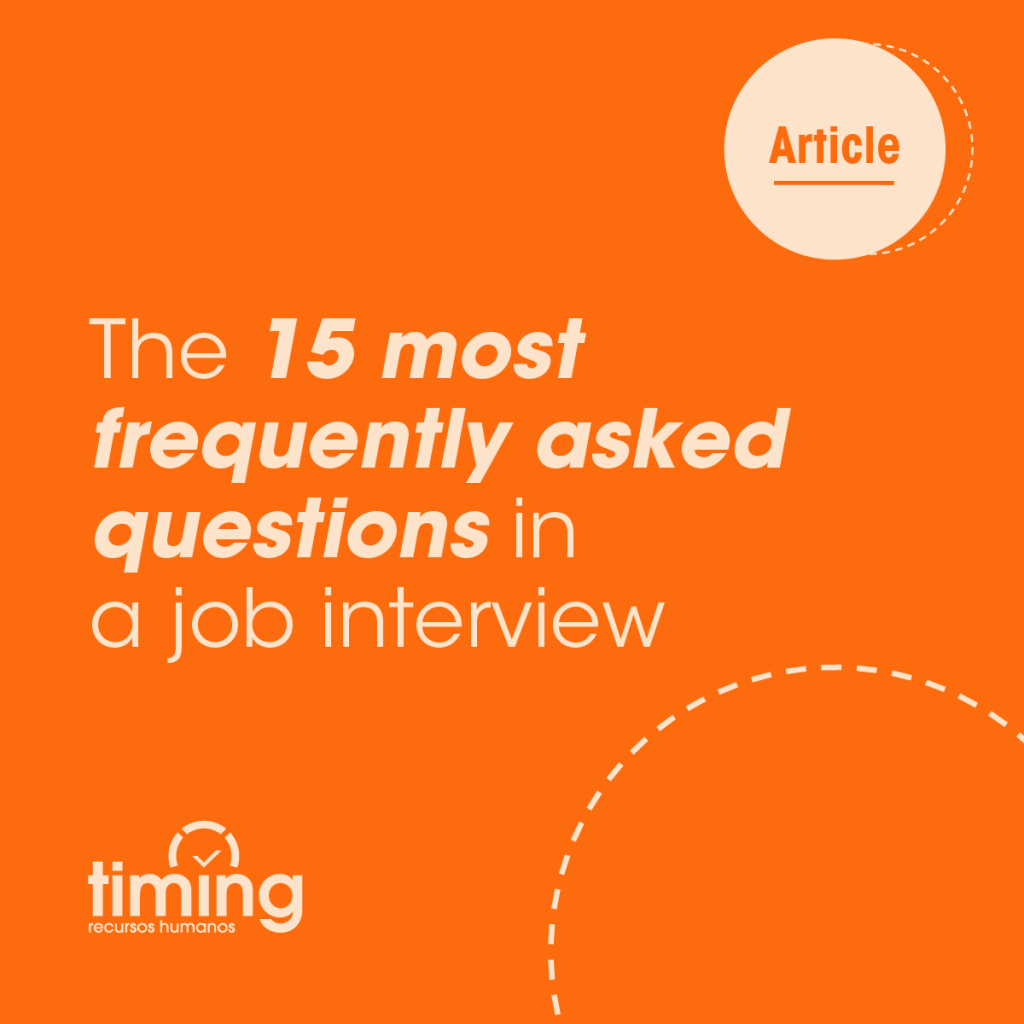
Interview
Read the 15 questions and prepare your answers in advance as honestly as possible. In this way, you can influence the interviewer’s decision in your favor.
1. Talk a little about yourself
This is the most frequently asked question in a job interview. Start in the past and continue your description to the present. Be direct, dynamic, but succinct, also mention the most positive aspects you have accomplished in your professional life, highlight your desire to be active and your taste for achieving goals.
2. Why did you leave your last job?
The positive attitude in this response is key. Don’t make the mistake of pointing out defects or serious problems in the company or conflicts you had with colleagues or superiors. The interviewer will think you will say the same the day you leave his company. The lack of challenges in the previous company is always a good argument.
3. What do you do in your free time?
Your hobbies say a lot about you and your way of being in life. The ease of interpersonal relationships and the ability to manage time can be identified in this question.
4. Do you consider yourself able to work under pressure?
The “yes” is mandatory in this answer. You may describe situations in a previous job where you responded well to pressure and thus achieved several goals with tight deadlines. You can conclude by saying that despite responding well to pressure, you prefer to plan your work carefully.
5. If you were hiring someone for this position, what would you look for in her?
Always say features you already have and leave out all those you don’t have.
6. What’s the biggest problem you’ve had with a superior?
It’s a trap, the interviewer wants to see if you speak ill of your superior. You can say that you don’t remember any real problems, because in addition to not being a problem person, when a problem arises, you automatically worry about solving it as quickly as possible. If you fall into this trap, you can forget about the job offer, as it will not be for you.
7. Why should we hire him instead of one of the other candidates?
Never mention that you are better than any other candidate, value yourself, but be humble! Specifically mention the short-term benefit it can bring to the company and the extent to which your skills and profile match the needs of that job. If you are a recent graduate, with little professional experience, praise the importance of university preparation in maturing character and increasing knowledge.
8. What are your weaknesses?
Never answer “I don’t know”. Obviously you do, but it’s not your job in the interview to point them out. If your strength is not organization, will you get the job if you admit it in the interview? Mention aspects that are considered strengths, but giving it an aggravated connotation, such as “being at home and thinking often about work”, “perfectionist with yourself and with others” and “too committed”.
9. Why do you want to work at this company?
It is crucial that you research the company before going to the interview. This is one of the most important answers and can thus demonstrate that you have done your “homework”. Based on the research you did about the company, through contact with employees and especially everything you find in internet search engines and on the company’s website.
10. What experience do you have in this area?
Be specific to topics that pertain to the position in question. If you don’t have specific experience, try to get as close as possible, showing that you are aware of the functions and importance of that position.
11. What are your main goals for the coming years?
Mention something in which you can contribute to the company, such as its full integration and professional fulfillment.
Do not make predictions about possible future promotions. Show ambition, but be realistic and mention that you would like to see your work recognized.
This question allows you to measure the candidate’s ambitions and prospects and assess their perception of their abilities.
Answers like “earning well” or “being retired” are strictly prohibited.
12. What salary do you want for this role?
Try to state that the most important thing is the attractive project and the opportunity you will have to demonstrate your best skills, thus avoiding the issue. If you are selected, you can always reject the salary if it is not to your liking.
13. If necessary, will you be willing to change your place of work?
It must be clear and honest. You should collect from your own family your availability for such a move if it seems likely that they will ask you about it. Never say you’re willing to move and then don’t.
14. If you are hired, are you willing to work overtime?
Of course yes! When the company needs it most, it will have to respond to the situation.
15. Have a question?
Prepare well for this question as it will be your last chance to impress the interviewer. What you know about the company should be used right now. Ask about the projects that are taking place, about those that are about to start
Learn more about interviews here!
